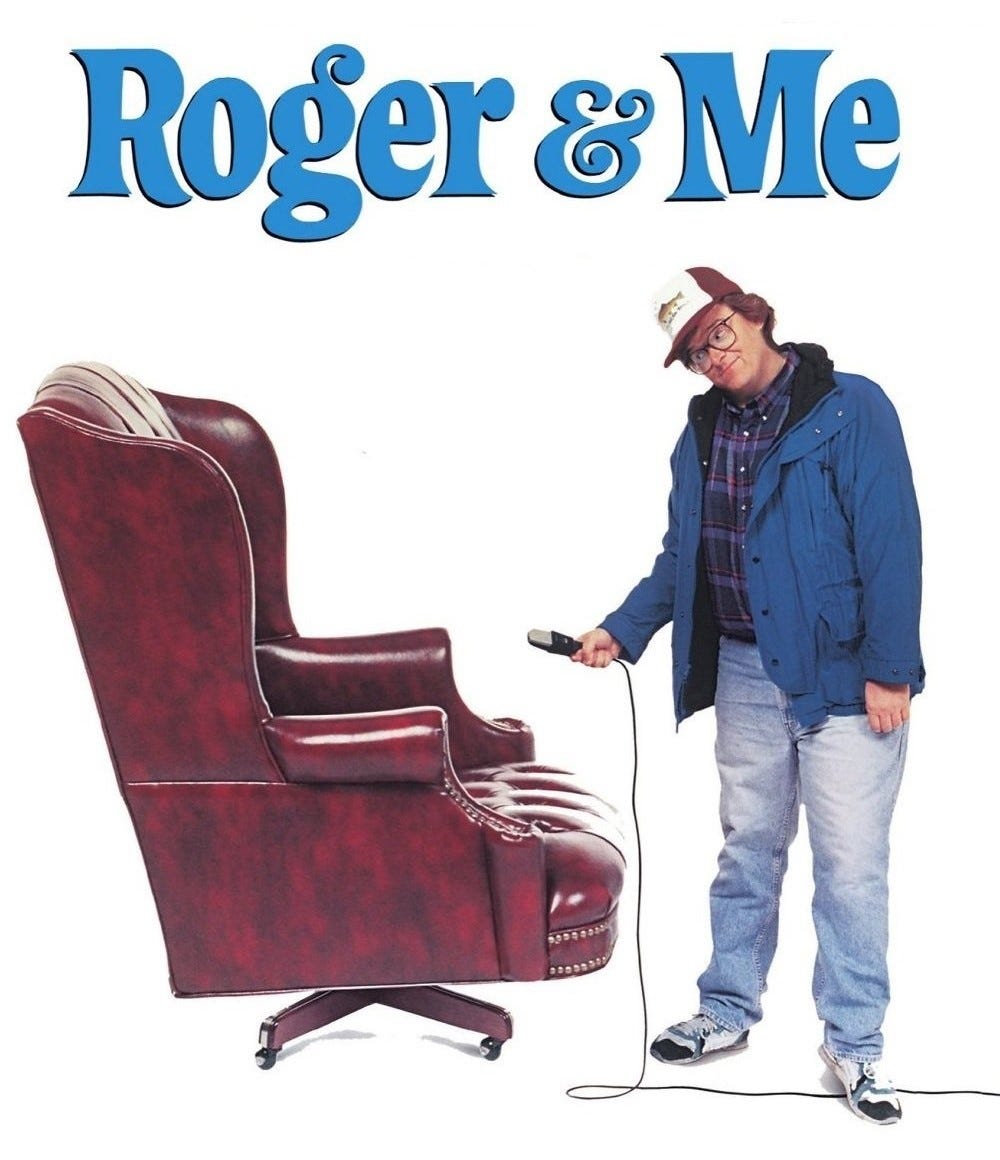Lobbyists spend millions to get the car dependency that's good for business
Politicians & corporations buy and sell influence. The built environment is not immune.
No one disputes the fact that Big Auto spends a ton of money to lobby politicians. You could describe what lobbying is to a 10-year old, and they’d immediately understand the purpose. Big Auto (or Big Fill-In-The-Blank-Industry) wants us to use their product as much as possible.
As a consumer, I don’t hate companies for trying to get their products and services top of mind. If it wasn’t for Amazon’s “also bought” feature, I would have missed out on some great photography and audio gear over the years. I was fascinated by marketing and propagandart long before I was a marketer or propagandartist.
It’s important to remember that lobbying and marketing are not one and the same.
Marketing is messaging crafted for you and me to buy something. You see a digital ad about a folding electric bicycle, something you didn’t even know existed. Before you know it, you’re daydreaming about how easy it would be to store that thing in your shed or garage.
Lobbying is influencing the policies and actions of government officials. It’s legal, it often involves mutual financial benefits, and the corruption grows with the level of financial entanglements. The innocent sounding terms are “government relations” and “legislative affairs.”
Persuading another person to support an idea is an important part of human interaction. When your kids are toddlers, you make them eat their vegetables. When they’re in high school, you reason with them about food choices.
I think lobbying gets overlooked in the subject of urbanism because backroom deals and shady business arrangements are so ingrained in American politics that lobbying has become like the carpet in your house. It’s only noticeable when someone reminds you it’s there, or when a stain appears.
Most of us are dependent on Big Auto’s products because of local, state, and federal decisions to prioritize those products. But then people who understand that lobbying exists to sway politicians also want to believe infrastructure developed organically to meet human needs.
I’m not making the leap that we only have paved streets because GM and Ford slipped money in the pockets of politicians to fund public street projects. Streets obviously pre-date the personal automobile. Carlton Reid wrote an excellent book called Roads Were Not Built for Cars: How cyclists were the first to push for good roads & became the pioneers of motoring (Amazon affiliate link).
Reid introduces readers to cycling personalities, such as Henry Ford, and the cycling advocacy groups that influenced early road improvements, literally paving the way for the motor car. When the bicycle morphed from the vehicle of rich transport progressives in the 1890s to the “poor man’s transport” in the 1920s, some cyclists became ardent motorists and were all too happy to forget their cycling roots.
Michael Moore’s directorial debut, Roger & Me, is a documentary you should watch, regardless of your feelings about Moore. He’s an excellent storyteller.
After General Motors closes its factory in Flint, Michigan, eliminating 35,000 jobs, filmmaker Michael Moore undertakes a quixotic quest to interview General Motors' chairman, Roger B. Smith.
Moore’s film is focused on the profit motive of a huge corporation, but political influence oozes throughout the story. The City of Flint bends over backwards to accommodate Big Auto. Parking lots are paved, schools are built, roads are widened, and parades and parties are held. And even when things went south with GM, politicians continued on as if this is just the way the world works.
Politicians and regulators rarely hold big corporations to account because of the revolving door of employment. It’s no secret that members of Congress and their staff get hired by lobbying firms. It’s in their personal interest as a politician to get big deals done with lobbyists (re-elected or re-appointed), and it’s in their personal interest to position themselves for future work after they leave Capitol Hill.
In the transportation industry, 64% of lobbyists are former government employees. In 2022, they spent $280 million buying policy and power.
Everything politicians do is influenced in some way by lobbying. The more money, the more influence. Infrastructure and all its adjacent fields are no different. They all are tied up in lobbying efforts, some more transparent than others.
Engineering and planning firms
General contractors
Unions
Trucking
Airlines
Railroads
Automotive
Public transit
Food delivery
Rideshare
Retail
One example is the American Road & Transport Builders Association. They spend half a million dollars every year to gain influence with politicians. Rad Power Bikes spent half a million last year, while Uber and Lyft spent about $2 million each. Visit OpenSecrets.org and choose your own adventure.
Humans need access to things like employment, groceries, schools, shops, museums, parks. Great big public works projects always get spun as wins for a community. Some are, many aren't. Many projects simply make it harder to get from home to the coffee shop, unless of course you hop in a car.
Maybe it's a coincidence that land planning and traffic engineering leads to infrastructure that so nicely aligns with Big Auto and its massive friend group. Or maybe it’s not a coincidence at all. "You can build a church, but your congregation has to drive."




